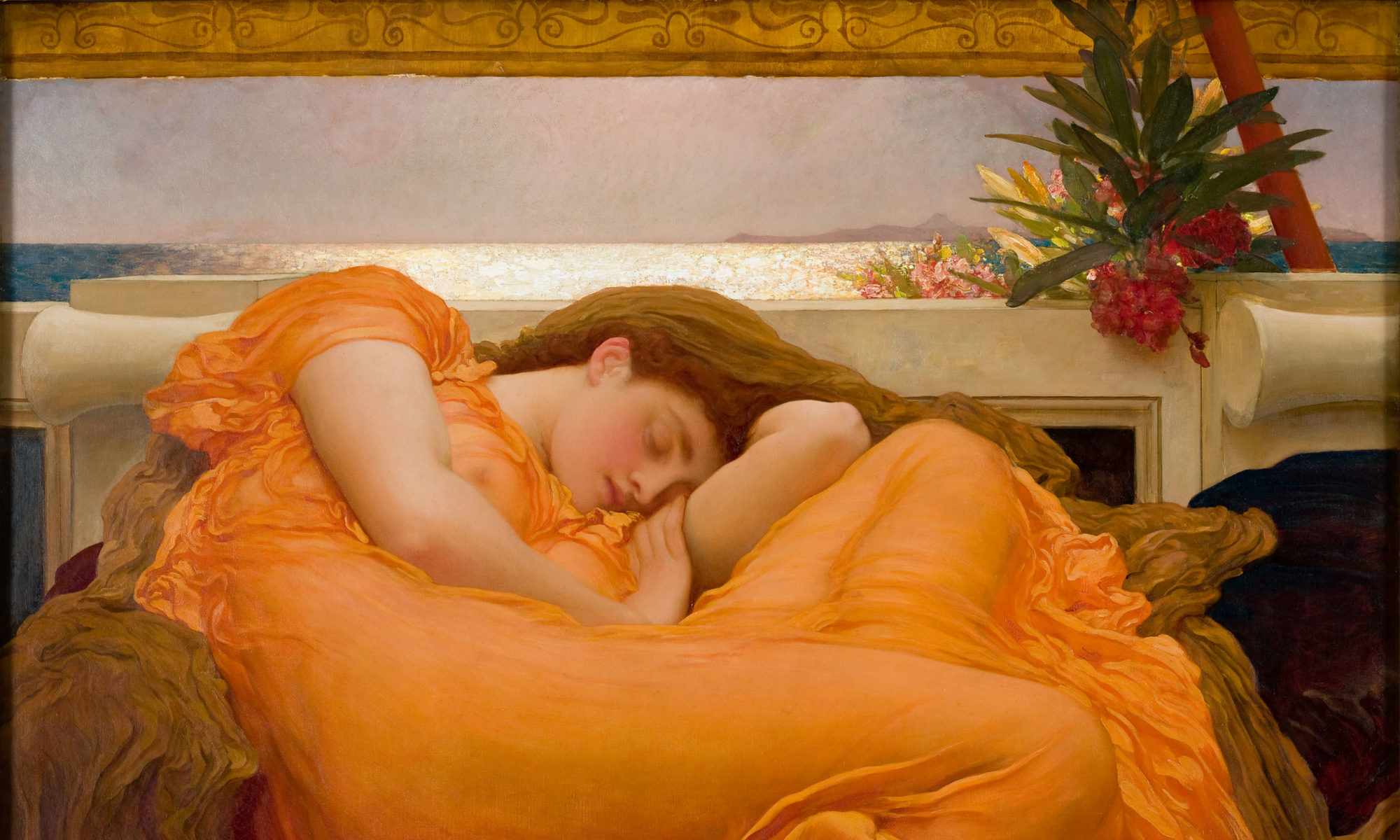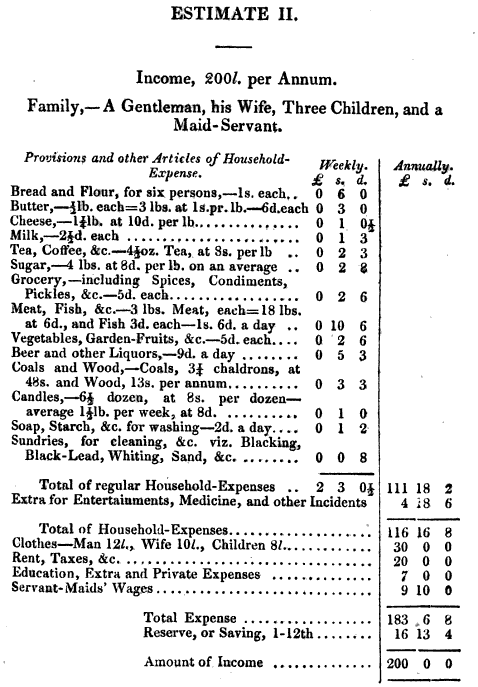Shhh. I found Economy For The Single And Married; Or, The Young Wife And Bachelor’s Guide To Income And Expenditure, Etc., published in 1845 during a boring Zoom meeting. May this excerpt bring you some pleasurable distraction as well.
He arrived in London, taking his ease at his inn, over an excellent breakfast, the morning after his arrival-and it now behoves him to form a plan as to his future arrangements,-unless by remaining where he is, he means to spend his £100 in as many days. There are four ways of becoming domiciled in London; namely:-in furnished lodgings, in unfurnished ditto, in establishments for boarding and lodging, and in chambers.
FURNISHED LODGINGS.-These may be obtained in almost every street, excepting those of a more aristocratic description at the west end of the town; and their comfort usually varies with the price. The state which approximates most closely to destitution,- and we may add, distraction,-is a parlour and bed-room. In this case you have a filthy-looking half-furnished room, four feet by six, exposed to the thousand and one ear-splitting noises of a London thoroughfare: a draggletail scullion for attendant who obligingly answers your bell after the sixth pull: a dozen lodgers above you in the day-time, and as many below you at night, for you sleep in the garret: and finally, a closet for tea, sugar, eatables, and cordial comforts, of which your landlady, in a truly maternal spirit, not unusually keeps a duplicate key. For apartments of this description you will commonly be charged twelve shillings per week: and as the expense of a second-floor (sitting and bedroom) is only three shillings more-say fifteen shillings -it is advisable that you, in any case, choose the latter.
In LODGING-HOUSES with eight or ten rooms, there are commonly two servants kept, and the more decent of the two attends upon the first and second floor “gents.” There is also much more care exercised over the cleanliness of the sleeping-rooms on these floors.
Others, again, who are fond of society, however miscellaneous, prefer living at a BOARDING-HOUSE, where a certain number meet at table daily, and spend the evening together. But men of this description are commonly triflers, who have no calling,—no serious aims as citizens or patriots. Their object being to eat and drink and kill time, they move about from one boarding-house to another, until tired of all, they take shipping for Boulogne, Honfleur, or St. Omer-and after six months return to England, and again go through the same drone-like monotonous round of existence.
If you are single, with an income of £100 per annum, and have £50 to spare for furniture, we strongly advise you to take some pains in looking out for CHAMBERS. You may consider yourself fortunate if you obtain them for £25 per annum, with £5 for attendance. And, of all other modes of living, this, for an unmarried man, is the most independent and respectable. You have every thing under lock and key: you can enter at any hour you please; and when you choose to be “not in,” you can sport your oak,” or in other words, close your outer-door.

It may perhaps be asked-are not UNFURNISHED ROOMS in a private house equally eligible? We answer, no: and that your effects are by no means so secure as under the care of a responsible porter. Besides, there is considerable risk in a private house; for if the rent be not punctually paid by the occupant, your furniture may be seized by the landlord!
There are some, who, having the comforts of a Club House at command, require only a furnished sleeping apartment, and such may be easily obtained for about eight shillings a week, and (respectable references being given) a latch-key will be permitted.
CHAMBERS are, for the most part, situated in the neighbourhood of good coffee-houses, and we may add, eating-houses: and it is in all cases desirable to breakfast, dine, take tea, and sup out. A cooking bachelor is next to impossible in a city where time is only too short for our occupations, and where every interval of some twenty steps brings us opposite to a coffee or eating-house.
You rise for instance in the morning, and go to the nearest and best coffee-house to breakfast, where, either below or above stairs, you will have any thing you require. The tea and coffee are excellent,the French rolls and butter and cold viands, ditto. Then you will find all the newspapers, and monthly and quarterly periodicals,-the “Athenæum,” “Literary Gazette,” &c. A two-fold advantage will arise from this mode of proceeding; your walk will give you an appetite, and you will be au fait at all the news of the day. … In the meantime, the servant at your chambers lights the fire and puts every thing in order against your return.

I now speak of the mere cost; but it must also be considered that bachelors usually waste more than they consume; and though such prodigality may be trifling per day, it will, per annum, make a tolerable hole in £100. This is avoided by frequenting a coffee-house, where waste, if any, must be to your advantage. Observations, similar to the above, apply to an Eating-House. There you will have choice of half a dozen joints, stewed rump-steaks, hashed calf’s head, all the vegetables in season, pastry, Parmesan, Gruyere, Derby, Stilton, and Cheshire cheese. As there is perhaps no greater disappointment among the lesser evils of life than a bad dinner, for which you have paid quite as high as you would have done for a good one, we advise you to enter only the more respectable establishments. A list of the prices of viands may always be seen in the window, so that you may calculate the expence to a nicety.
In like manner as you breakfasted, you will take tea at a coffee-house. Oyster and supper-houses are to be found at every half-dozen yards in the larger thoroughfares.




























